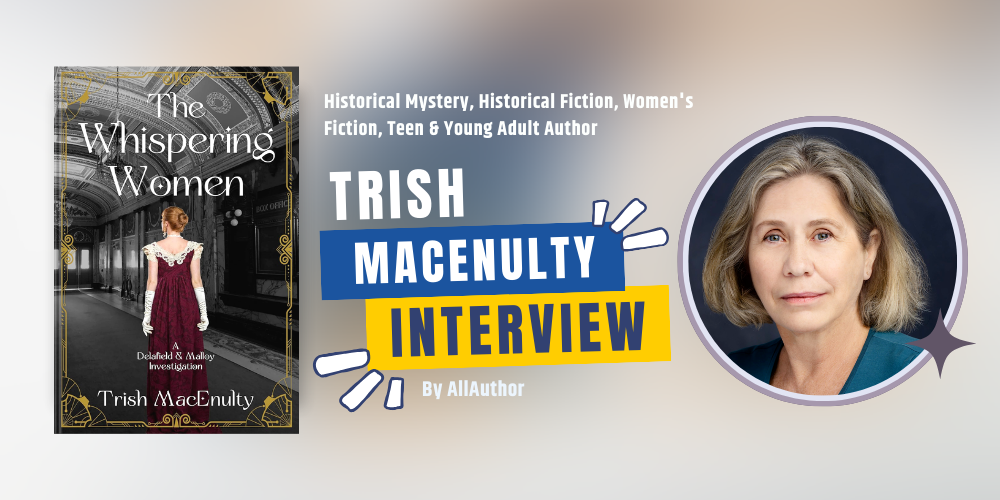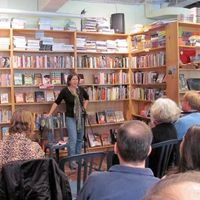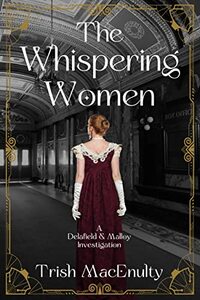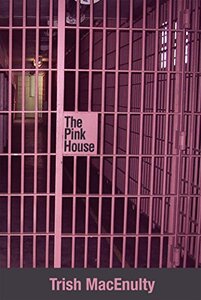Can you tell us about your earliest memories of writing and how you developed your love for books?
When I was a child our television broke and so I was stuck with BOOKS -- which I loved. I'm one of those fortunate people who had a mother who read stories to her from an early age. My favorite was a book about a seagull and a boy who shrunk small enough to ride on the seagull and become a spy. I've loved spy stories ever since.
You graduated from the University of Florida, where you studied creative writing with Harry Crews. Can you share any memorable experiences or lessons from your time studying under him?
Oh my. Everyone who studied with Harry has a few stories. He was quite a character. I think one of the biggest "compliments" I got was when he questioned whether I had actually written a story that I turned into him in one of my first classes. He thought it was either too good or maybe too authentic to be written by a student. He soon believed me when I gave him the backstory.
How has your background in creative writing education influenced your writing style and storytelling?
Creative writing workshops over the years have helped me hone my craft. It also helps so much to have a community of writers.
Your writing spans various genres, from historical novels to crime novels, memoirs, and more. How do you approach writing different types of books?
Actually, my genres are divided by time. I started out writing short stories and essays, which tended to be autobiographical. My first novel, also autobiographical, later became one of my memoirs. Other novels written in the early 2000s had autobiographical elements. It really wasn't until these last few years that I turned to purely historical fiction.
In "Cinnamon Girl," you explore the coming-of-age theme. What do you find most compelling about this genre, and how does it relate to your own life experiences?
Interestingly, Cinnamon Girl straddles my two periods of writing. I wrote (and published) an early version of this book back in 2009. That book had a lot of autobiographical elements combined with fictional content. A decade later -- after I wrote my historical novel series -- I decided to revisit the book, give it a new title and a new cover and a complete makeover. I strengthened the historical aspects of the book and worked on the storyline so that it was more cohesive.
Sarah Johnson published an interview with me on her blog that goes into more detail about that book, if you're interested: https://readingthepast.blogspot.com/2023/09/interview-with-trish-macenulty-author.html.
You teach magazine writing at Florida A&M University. How has teaching writing impacted your own writing process and skills?
When I teach writing, we almost always do some in-class freewrites, and the students love it. This keeps me in touch with the healing and connective power of writing. It reminds me of what drew me to writing in the first place -- the surprise, the connection with other people, and the emotional release.
As a writer, how do you balance your roles as a book reviewer and author? Does one influence the other?
Absolutely, they influence each other. For one thing, reviewing books helps me keep current with publishing trends and publishers. And I believe it is always helpful to pay attention to what other writers are doing in their work -- either successfully or unsuccessfully. For me it's also been useful in deciding where I want to take my historical novels in the future. Finally, I've met a few wonderful writers through reviewing their books and interviewing them.
Your website mentions that you live with your husband, two dogs, and a cat. How do your personal life and environment affect your creative process?
The great thing about having a dog (or dogs) is that they get you out of the house and into nature. Sometimes writing can be so absorbing -- not to mention sedentary -- that I forget how important it is to get out in the world. But with my dog (my older dog died this summer so I only have one now), I am pushed to get up and go outside and focus my eyes on distance rather than a screen. I live in a place with lots of trees and parks and being out in nature refreshes my mind -- and my soul.
The great thing (for writing) about my husband is that he oftens works from home and so we're in the same proximity, both of us working on our computers. His presence keeps me from feeling isolated. I think I work better. Also, the fact that he designs my books and listens to me brainstorm ideas doesn't hurt!
As for the cat, well, as any cat owner knows, a cat can make writing quite difficult because once she commandeers your lap, your productivity goes way down. You just have to wait for her to get bored and leave.
Can you share any specific challenges or joys you experienced while writing your historical novels, and how do you approach research for them?
I adore the research part. When I first started writing historical novels, I didn't realize how vital the research would be, but by the time I got to my novel Secrets & Spies set in 1915 Manhattan, I had discovered that the actual history can practically write your story. There was just so much going on in the world. The challenge becomes not loading down your book with too much research at the expense of story.
A fun aspect of writing about the 20th century is watching movies set or made in the actual time period. So I've been watching so-called propaganda films set in 1939 for a book I am currently writing. Last night I watched a movie called Hitler: Beast of Berlin. Long before Americans knew the full extent of the horrors of Nazi Germany, filmmakers were showing a vision of what to expect.
Do you have any favorite authors or literary influences that have had a significant impact on your writing career?
Too many to name! These are just a few: of course, Harry Crews was hugely important to me as a teacher and a writer. Two other teachers who had an enormous influence on my writing include Lynda Schor and Les Standiford. Mary Karr's memoirs have been particularly influential. For historical novels, I go to Kate Quinn, Renee Rosen, Madeline Martin, and Ken Follett. A Gentleman in Moscow by Amor Towles changed my life. I recently listened to A Perfect Spy by John Le Carre. Brilliant!
Of course there are all those great authors who impacted me in my formative writing years: Toni Morrison, Fyodor Dostoevyksi, James Joyce, Jane Austen, George Eliot, Thomas Pynchon, Ernest Hemingway and the rest of the canon.
Then there are the popular writers that I go to sometimes to be reminded how important a propulsive storyline is. These include Michael Connelly, Lee Child, Leigh Bardugo, Colleen Hoover, and Rebecca Yarros. And also Tom Woods' assassin books. I love the intense action of a great assassin book.
I suppose everything I read (and watch!) has some sort of influence. Not to mention all the stories I have read in draft form in various writing groups over the years. I think they influence me most of all.
Your memoirs offer a personal glimpse into your life. What inspired you to share these stories, and how do you navigate the line between fact and fiction in memoir writing?
I had a difficult time getting my act together when I was young and I made some seriously wrong turns. Writing helped me understand the choices I made and was deeply healing. For many years, I used my life experiences for much of my writing from short stories to novels to memoirs.
Navigating the line between fact and fiction depends on whether you are calling your work fiction or memoir -- even if the fiction tends to be autobiographical. If you call it fiction, you get more freedom, and as I tell my students there's a danger in getting "shackled by the truth." In other words, if it's fiction, let it be fictional even if it's based on true events.
In my memoirs, I preface the work by admitting that I'm telling these stories from my perspective and others may remember those same events differently. Also, as a writer, I am selecting the episodes from life that I want to include. Sometimes one episode will have to stand in for many similar episodes. And one composite character may represent several people so as to avoid having a "cast of thousands." So no, the reader won't be getting "the whole truth, the absolute truth, and nothing but the truth." What they will get is as accurate an emotional representation of what happened as I can render. While I believe it's important to be as honest and as true to the actual events as I can be, sometimes I have had to hedge my bets. In a story like The Hummingbird Kiss, details from so long ago are going to be fuzzy. In a book like My Mother's Requiem, which comes out in January 2024, I omitted some experiences out of respect for the privacy of other people or because they weren't relevant to the story I was writing and also because most people don't want to read a thousand-page tome.
Your involvement with the Historical Novel Society suggests a passion for historical fiction. How did you become interested in this genre, and what do you believe is the importance of historical fiction in literature?
I used to read everything! I still do enjoy a good thriller or fantasy, but historical fiction has become my favorite because I'm learning at the same time that I'm being entertained. As I've gotten older, I find I'm not reading simply because something is well written. I'm hungry to learn about the past and see how it impacts, reflects, or differs from today.
As for writing historical fiction, at some point I became bored with autobiographical writing. I love historical stories and figured I would enjoy writing in the genre so I jumped in with The Whispering Women. I struggled with that first book and did tons of rewriting, but once I knew the characters and realized how much the actual history could help with the plotting, I got into a good rhythm and am currently working on a fifth book.
I should also add that the Historical Novel Society is a great organization with a high level of professionalism.
What has your AllAuthor experience been like so far? What are some highlights?
It's been fantastic. The book cover contest is lots of fun, but I especially appreciate seeing the promotions on X. The banners that are created for the books are so good. They are also helping me come up with ideas for ads!






